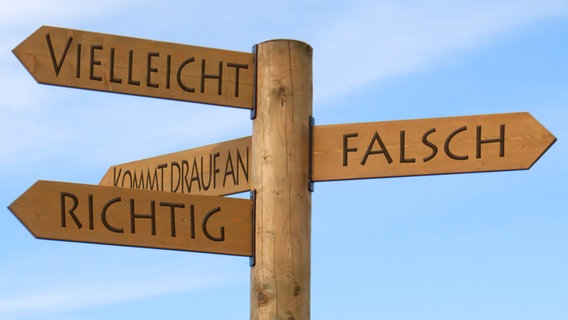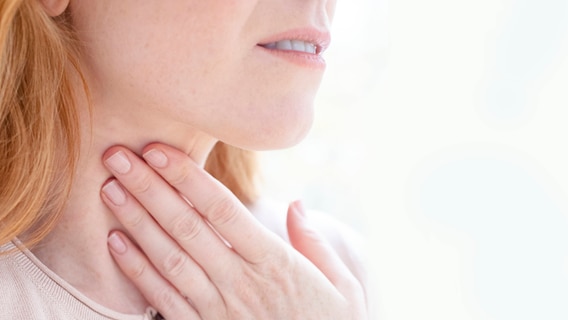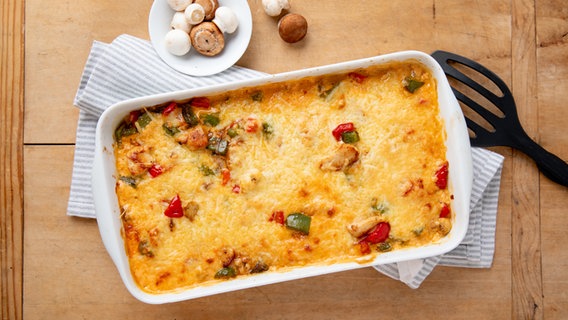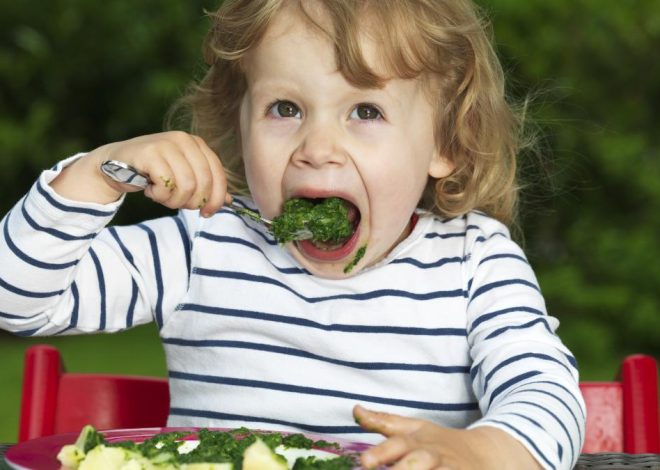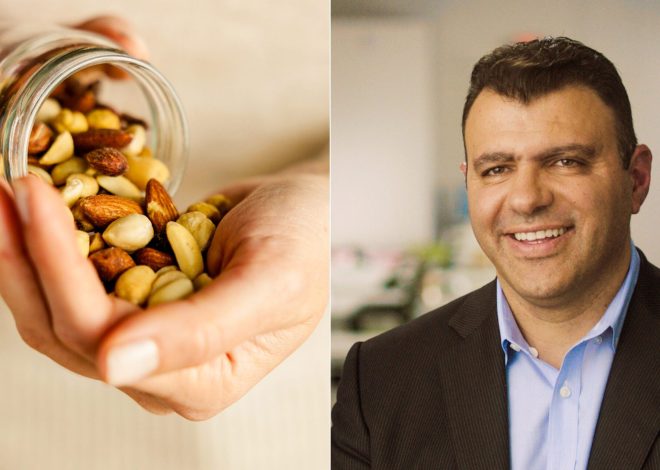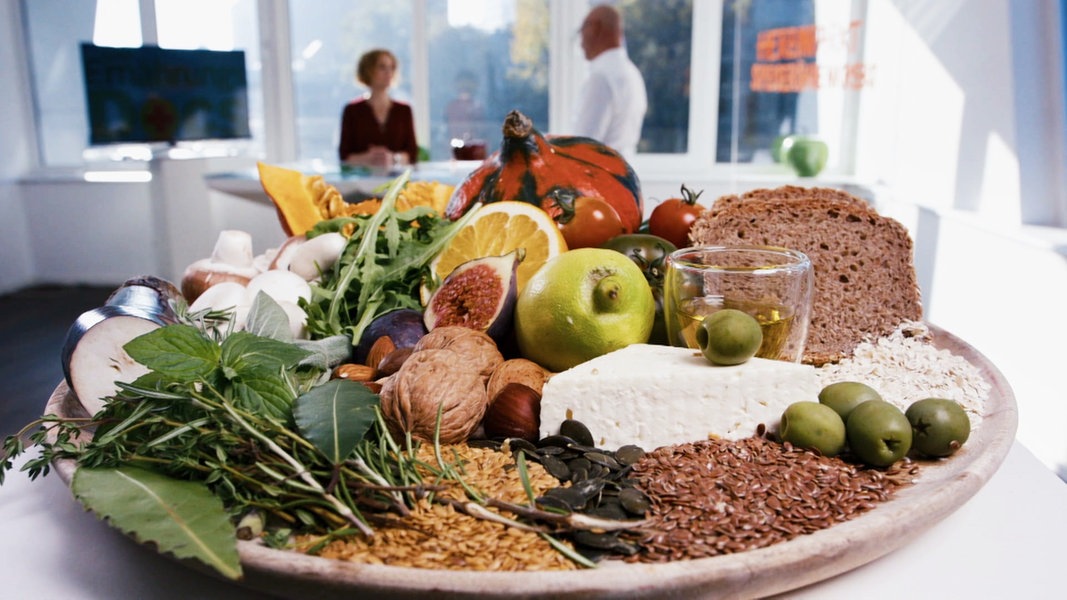
Esophageal cancer: Proper nutrition in aftercare | NDR.de – Guide
As of: February 5, 2024 3:30 p.m
Symptoms caused by an esophagectomy can be alleviated with a protein-rich, plant-based and low-sugar diet. This can help those affected achieve a new quality of life.
The treatment of esophageal cancer has serious consequences for food intake and digestion – especially if the esophagus has to be completely removed. Those affected often suffer from loss of appetite and unwanted weight loss. Difficulty swallowing, stomach cramps and diarrhea after eating lead to significant impairments in daily life. An adapted diet can help relieve symptoms, prevent nutritional deficiencies and improve quality of life.
New energy through nutrient-rich foods
In order to strengthen the body after the debilitating cancer treatment and to regain energy in a healthy way, a nutrient-rich and protein-rich diet in the spirit of Mediterranean cuisine is recommended: lots of vegetables, herbs, low-sugar fruits, nuts, kernels, seeds, vegetable oils, etc Olive oil, whole grains and dairy products, fish and seafood for omega-3 fatty acids and little meat.
The abundant consumption of plant-based foods leads to a high fiber intake, which has a positive effect on intestinal activity and intestinal flora. These foods also provide important vitamins, minerals, antioxidants and secondary plant substances that support metabolism and strengthen the immune system.
To counteract muscle loss, it is important to ensure adequate protein intake: lean meat, fish, dairy products, eggs, soy products and legumes are suitable sources.
Avoid fast carbohydrates
After (partial) removal of the esophagus, those affected often have to take stomach acid blockers (proton pump inhibitors) for life. This allows bacteria from food to enter the small intestine, which is normally blocked by stomach acid. A possible consequence is small intestinal bacterial overgrowth (SIBO), which often causes flatulence, abdominal pain and diarrhea. One strategy to starve the incorrectly settled bacteria is to deprive them of their basic food: carbohydrates, especially from white flour and sugar.
Avoiding these short-chain, so-called “fast” carbohydrates can also help against dumping syndrome, which can occur postoperatively during esophagectomy. The chyme rushes from the remaining stomach into the small intestine. The sudden emptying of the stomach can lead to stomach pain, circulatory problems and fatigue.
Tips for diet after esophageal removal
- Lots of small meals distributed throughout the day (3 main meals and 3-4 snacks).
- Slow and consciously eat and chew thoroughly! Pay attention to hunger and satiety.
- Not too late eat.
- Very fatty ones, sharp or strongly spiced and salted Food avoid.
- To name is or cold food and drinks avoid.
- Carbonated beverages avoidit is best to drink water or unsweetened herbal teas.
- Separate food and drink: Drinking directly with meals speeds up gastric emptying. Those who have undergone surgery should therefore not drink anything for around 30 minutes before and after eating.
- Little sugar, confectionery and white flour products.
- Solid foods are more tolerable than mushy or liquid ones.
- Certain foods are often no longer tolerated as well after surgery. In particular lactose-containing Dairy products often cause flatulence and diarrhea in those affected. It is important, individuallyfor example by keeping a food diary, to find out, which foods cause symptoms, and to avoid them temporarily.
- Movement Being in the fresh air is good for the heart, blood vessels and bones and counteracts muscle breakdown.
Nutritional advice recommended after esophageal surgery
After the (partial) removal of the esophagus, the symptoms can vary greatly from person to person. The diet should therefore be adapted individually and gradually to the respective situation. Since the absorption of certain vitamins and minerals can be difficult due to the shortened digestive transit time, it may be necessary to temporarily take nutritional supplements or liquid food. It is therefore strongly recommended to be accompanied by your treating doctor or a nutritionist.
What to eat in esophageal cancer follow-up: foods and recipes
Eating properly after (partial) removal of the esophagus: Here you will find recommendations and food lists (also available for download).
Further information
Further information


Ethel Purdy – Medical Blogger & Pharmacist
Bridging the world of wellness and science, Ethel Purdy is a professional voice in healthcare with a passion for sharing knowledge. At 36, she stands at the confluence of medical expertise and the written word, holding a pharmacy degree acquired under the rigorous education systems of Germany and Estonia.
Her pursuit of medicine was fueled by a desire to understand the intricacies of human health and to contribute to the community’s understanding of it. Transitioning seamlessly into the realm of blogging, Ethel has found a platform to demystify complex medical concepts for the everyday reader.
Ethel’s commitment to the world of medicine extends beyond her professional life into a personal commitment to health and wellness. Her hobbies reflect this dedication, often involving research on the latest medical advances, participating in wellness communities, and exploring the vast and varied dimensions of health.
Join Ethel as she distills her pharmaceutical knowledge into accessible wisdom, fostering an environment where science meets lifestyle and everyone is invited to learn. Whether you’re looking for insights into the latest health trends or trustworthy medical advice, Ethel’s blog is your gateway to the nexus of healthcare and daily living.

